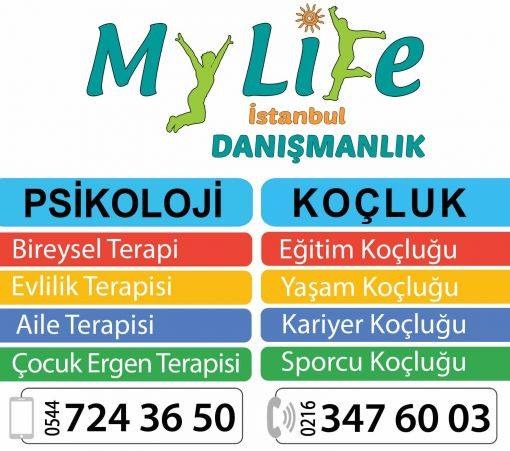7/24 Psikolojik Danışmanlık Merkezi
Randevu Tel: +90 505 767 58 85
+90 533 373 81 23
Clinical Psychologist istanbul kadikoy uskudar
Date of interview: 23.10. 2014
Interviewer: 20110208101
Interviewee: Clinical Psychologist
Tel: 0216 347 60 03
Mob: 0505 767 58 85
G.D is a clinical psychologist, working with children and adolescents and practicing more than 35 years now. As she confessed herself, she became a psychologist all by chance with a little prior knowledge of what it is all about. “Those years when we were supposed to go to the university to study any science” she said mentioning late seventies, “we didn’t have such opportunities as you do now, or someone who could simply orient or lead us. I just decided for myself that it is going to be the social sciences, that’s it”. And it was the psychology department of the Istanbul University where she became aware of the real objective of the psychology science. But, unfortunately it was politically and economically difficult times for everyone, especially for students. The education was interrupted many times during those years by student’s protests and political movements. “All I do remember of my undergraduate education years are our long meetings at canteens and armed soldiers walking around University and watching us carefully and ghastly” she is laughing, “nothing like any researches or any scientific work we took place in. I can not recall any ‘delightful’ memory of those years”. During the graduate years in clinical psychology at Cerrahpasa University she started working with children suffering from autism. She specialized in field of behavioral psychology and was particularly interested in genetic predispositions. She has mentioned several researches on autism and speech difficulties they were working on with her professors but didn’t give any particular article name. Furtherer, she continued working with disabled children and adolescents in the hospital settings as a clinical psychologist for several years. During these eight years she was having supervision and emphasized its necessity, importance and supplement. “I don’t believe I have really learned anything during my education years, but when I had started to work with children” she admitted. She believes that; its each patient that we work with who really teaches us our profession and it’s them who make us to become psychologists. That, each session of therapy is healing not only patients but us as well. And that each new case is absolute nonsense for psychologist, especially at the beginning of practicing, which is not described in any written book or taught by any professor. And even after long years of practicing with huge amount of experience, psychologist still faces cases when the route is unknown and experience is insufficient. And this kind of cases becomes real knowledge recourses, which we discover together with patients.
Most of the cases she is working nowadays are adolescents with sexual orientation problems. Some of them are brought forcefully by their parents in hope of miracle ability of psychologist to make them ‘normal’ after several sessions. In these cases, she tries to explain carefully to these parents that it’s not an option without any intention of their child. And even if there would be a great desire of an adolescent, it doesn’t always give guarantee of the successful outcome. She herself believes that distorted sexual orientation is an incurable decease; even though it is not seen as a psychological decease in psychology anymore. But mostly, the adolescents with sexual orientation problems come to have professional support willingly. Confessing at the beginning of the meeting that they are gays, they look for professional support with the daily social problems they face; or need professional help in the process of self-defining. But the most demanding of all cases with these adolescents, she things, is the one when the person denies morally and mentally accept this situation. About the worst cases she worked with, she said like that: “being a professional with a long years of experience, I still can not stand indifferent and calm in situations when the problems arise from sexual abuse. I just can’t bare it and feel deeply disturbed. I remind myself that I am hear for treating and healing the soul of that poor child, but how can I carry remediation to someone when I feel so helpless and furious myself ”. She talked about the possibility of refusing such cases at the very beginning of the therapy, and about the difficulties to refuse them when the core of a problem becomes evident after long period of therapy. But the cases that she certainly rejects to work with are the cases including incest relationships. “Never will I accept to work with… let’s say… a father that has hidden or overt sexual desire for his daughter. I feel uneasy in a presence of such people and can never be objective, understanding or, what is more implausible, helpful”. Unfortunately and unluckily for her, it is not rare problem in our society that come into the picture while working with adolescents. She complained that there is no source of knowledge that you may refer to when such feelings spread over, that no one teaches you how to dissemble your real feelings and coordinate appropriate behavior in such situations. She thinks that, it is the most challenging part of our profession when your feelings, thoughts, behaviors and duties are in conflict. Here starts the self-regulation and self-inspection process when you treat yourself just the way you treat your patient. But, there is also enjoyable and rewarding side of the coin. She mentioned several times that being in this profession brought her different understanding of world, many different perspectives in evaluation of a person or situation, made her be more patient about her own beloved ones and thankful for all she has. She emphasized that; although it wasn’t her consciously and deliberately preferred profession, she is very fortunate for being psychologist, as it makes her feel redeem person and it is very relevant with her nature. She gave me a piece of advise when I was just about to leave: “Read and learn by heart all the theories and books they give you, but do not fail to forget them all when you start practicing”.
It was my first visit to a psychologist in my life; although I wasn’t supposed to provide any information about myself or become a subject of psychoanalysis, still I felt very nervous and even anxious. I didn’t expect such a warm welcome; neither did I hope to meet someone so talkative and friendly. Actually, how I imagined this meeting was absolutely the opposite of what I experienced in reality. From my very first step in, she was smiling sincerely and welcoming me on her feet, thrusting her hand and showing me chairs where I may sit. She didn’t question me which organization from and for what reason I came interviewing her, in spite of the very little information I provided in our telephone conversation. After asking my name she started to speak with me as if we were old acquaintances and in a minute or two my nervousness disappeared. I felt very comfortable in her company and didn’t even have to ask many questions. She was talking easily and openly and out of that speech I actually retrieved all information I was supposed to get, and even more. We talked about one and a half hours, as our meeting was arranged at the evening time after her last session and she was not in a hurry. Right or wrong, I had a feeling as if she was also pleased to be there with me and didn’t want it to finish soon. The room we were sitting in was all white colored, dim and cozy. There was a little of furniture, some paintings on the wall reflecting old Istanbul. Wide window fully captured one of the walls and might be perfectly lightening the room in daytime. Two chairs were placed in front of her desk and that was where I sat. She turned her chair toward me and her desk didn’t seem as dividing the space between us. I was surprised to find out how willingly she was talking about her profession and life in generally. She wasn’t picking words while talking, felt free and secure. When I remind her that I am going to report all we talk about, she laughed laud an kept speaking. She didn’t seem to be concerned about it at all. I could imagine that all her patients felt the same feeling of trust and friendship from the first session of therapy. What else surprised me, that she didn’t address me any question about myself. Somehow I expected of clinical psychologist to have automatic need to discover the person he/she has conversation with. Or maybe I was just disappointed that I didn’t have a chance to express myself better. Another question that captured my thoughts at the beginning of conversation was: does she contact the same way her patients as well and does it give them a feeling of confidence? I thought, if I would be the one who came for assistance, I would rather find someone more influential looking and speaking. But these feelings didn’t last for a long time. Funny it is, but after a while I actually regret that I was there only for an interview. She used her hands and facial expressions a lot while talking, to emphasize joy or disgust; sometimes they were quite funny and made me laugh. Later she explained that making jokes and funny faces made it easier to create warm and trustful relations with people in general and they are quite useful for psychologists who work with adolescents in particular. Many times she gave an example form her own family and herself when explaining something. She left an impression of a very happy and satisfied person who wouldn’t change a bit in her own life circumstances if she had a chance. And not because the life was “all brilliant” for her, but because she seemed to have that great ability to handle it all with humor and gratitude. When I was living she shacked my hand and asked several questions about my future plans, listened very carefully and asked not to hesitate to contact her any moment I feel like. While walking away from her office I had confusing feelings about this meeting. Somewhere inside I felt disappointment and anger; it didn’t make me feel as if I was with the psychologist at all, and what she was doing as profession didn’t look like something serious and effortful. She was talking about it as if it was a scene from a theatre, fragment form a movie but not real people and real problems. On the other hand, I felt so warm and easy, especially when thought of how nervous I felt before it. “Probably”- I thought, “If I would be her patient, I would await eagerly for the next session of the therapy to meet her again”. Why I was so confused inside after that meeting, I didn’t understand. May be, because I had absolutely different expectations about what the psychologist should look like, or act like. Or maybe I wanted to meet someone that I would like to imitate later in my life, or I would try to look alike. It is been long time now that I wish to become a clinical psychologist and I can not say that this meeting anyhow strengthened my feelings or desire about it. But certainly it has influenced my opinion about how it is to be a therapist, what should be important for the one you work with in terms of trust and release. That, it is not necessary to give an impression of being a kind of ‘superior’ person with no feelings and subjective ideas about issues during the sessions. That it is may be more important to make sure that your patient sees you just as one of them, with only difference of being professionally trained about dealing with problems that you, as well as anyone, face in your life. And that maybe in some cases it is really helpful to be able to make jokes with no intention to despise the problem but to make it easier for person smoothly and readily to talk about them. That actually it is more important what the patient feel and think of you as a specialist, rather than what you think of how the specialist should be seen by a patient.. And what else interesting I have learned is that the psychologist has a great need and necessity to talk about himself/herself when such opportunity appears…

.jpeg)













